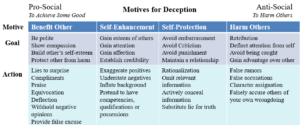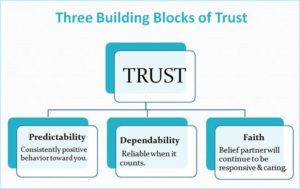How to Be Lucky in Love
By Jamie C. Williamson, PhD
Being lucky in love is more about action than chance.
Whether you are searching for your first love, building the courage to start a new relationship, or trying to get that “lucky in love” feeling back with your current partner, keep these two important actions in mind.
Be Deliberate in Your Search (or “re-search”)
First, you must take focused action to meet the person who will make you feel lucky to know and be known by them. And that means looking for love in the right places. Despite the popularity of the phrase “meet cute”, most romantic relationships don’t start from unpredictable happenstance. Instead, they result from Propinquity:
It’s just so fun to say aloud. Try it: pro·pin·qui·ty
Propinquity refers to being physically or psychologically close to someone. The Law of Propinquity explains that the greater the proximity (closeness) between people, the more often they interact with one another, the more likely they are to become friends or lovers. You meet. You get to know each other. You like each other. You trust each other. Relationships develop because you have ongoing opportunities to interact.
Your best friends are likely your old school chums, roommates, current neighbors, work colleagues, committee members, or people you see often for other reasons. And propinquity probably explains how you met (or will meet) your life partner, too.
Propinquity, not luck, pollinates your close relationships. So, if you want to attract a partner who will make you feel “lucky in love”, decide what type of person you need, and then go where those types of people are likely to be.
And, most importantly, DO NOT keep going to the same places expecting to meet different kinds of people. They won’t be there.
If you and your current partner love each other but want to regain that invigorating “lucky in love” feeling, then you can deliberately “re-search” for each other again, but this time in your own home. Now that’s propinquity, for sure.
And the same Law of Propinquity applies. But you will need to purposefully invest in meaningful conversations, share activities you enjoy, go on date nights, and actively show your appreciation for each other. The more you turn toward each other, the deeper your trust and intimacy will be, and the more you both will feel lucky to know and be known by each other. Soon you’ll start feeling “lucky in love” again.
Make Your Own Luck
Most of us want to appear “lucky in love” and to a lesser extent, have our friends and family see us that way, as well.
Ironically, luck is uncontrollable and unpredictable, and not at all what truly makes a long-lasting, satisfying love relationship. The truth is that being “lucky in love” is only an illusion created by couples who master relationship work.
Couples truly “lucky in love” accept and are grateful for the good fortune that they experience. However, they also have learned that sustaining relationship luck is a DIY project. That is, when it comes to relationship luck, you make your own.
Initially, the “lucky in love” feeling creates a positive illusion that causes partners to overlook their differences and ignore each other’s flaws. Then, the newness wears off. The longer the relationship lasts, the more partners learn about each other, and reality begins to erode the positive illusion.
Inevitably, the partners start focusing on their differences and each other’s weaknesses. So, of course, the predictable conflict ensures.
As this happens, the couples most successful at remaining “lucky in love” work hard at accenting their partner’s positive attributes. They purposefully infuse their home and relationship with positive sentiments and an attitude of gratitude.
Partners who mutually express gratitude to each other strengthen their relationship, enhance the levels of perceived intimacy and mutual care, reinforce their sense of belonging, and bolster their levels of marital satisfaction. That is, they make themselves feel “lucky in love”.
And that “lucky in love” feeling bolsters them against the unfortunate mistakes they both will inevitably make and helps them manage life’s stressors in a way that brings them closer together, rather than farther apart.
If you want to build a “lucky in love” relationship with a new partner, follow these basics and start making your own luck. If you’re in a long-term relationship and want to get that “lucky in love” feeling back, talk to your partner about how you might start to turn your luck around.
Let me know if I can help.
I’m a FL Supreme Court Certified Family Mediator and part of the Gottman Referral Network. You’ll find me at Amity Mediation Workshop, where we specialize in “friendly divorce” mediation and use the Gottman Method in our psycho-educational “Let’s Stay Together” private workshops, designed for couples who want to restore or enhance their marital happiness. I also speak frequently on relationship topics and author the relationship blog “Work it Out”.





